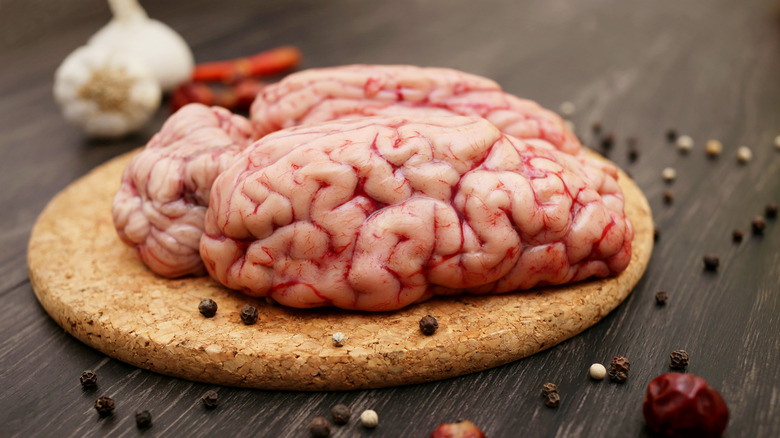The Potential Reasons Eating Brains Is Less Popular Than It Once Was
It might be morbid for some to think about, but brains have been a staple and delicacy in lots of places around the world for a very long time. And if you just know where to look, there are still quite a few restaurants that continue to prepare and serve brains. Everything from French to Chinese cuisine and everywhere in between features brains as the star ingredient of some very popular and very tasty dishes.
It might still be a bit off putting to order tacos de sesos or bheja masala, but according to LiveStrong, brains can be a solid contributor to a healthy diet. Lamb brains, for example, are high in vitamin B-12 and provide a dense concentration of minerals like copper and selenium, which act as antioxidants in the body. They are also good sources of omega-3 fatty acids and contain a hefty amount of protein, so why then are they not as popular as all of these global recipes suggest they once were?
Not quite a no-brainer
Well, for one, while there are healthy nutrients to gain from eating brains, there are also some hazards as well. Brains have an astounding level of cholesterol (579% of the recommended daily value, per LiveStrong). They are very high in fats, which make them delicious to eat, but potentially problematic for those trying to watch their caloric intake and counting macros.
But in reality, unhealthy food is consumed every day, so why are brains not eaten widely? According to TASTE, what really put the brain down was bad public relations. After first pointing to the unhealthy levels of fats that brains contained, a study linking mad cow disease with the consumption of beef really dealt the deciding blow in the 1990s. Slowly chefs and restaurants no longer even attempted to preserve its place on menus, and surely brain went out of culinary fashion. But again, brains are still available, and perhaps right now, you should ask yourself if it's worth more than just a thought.

